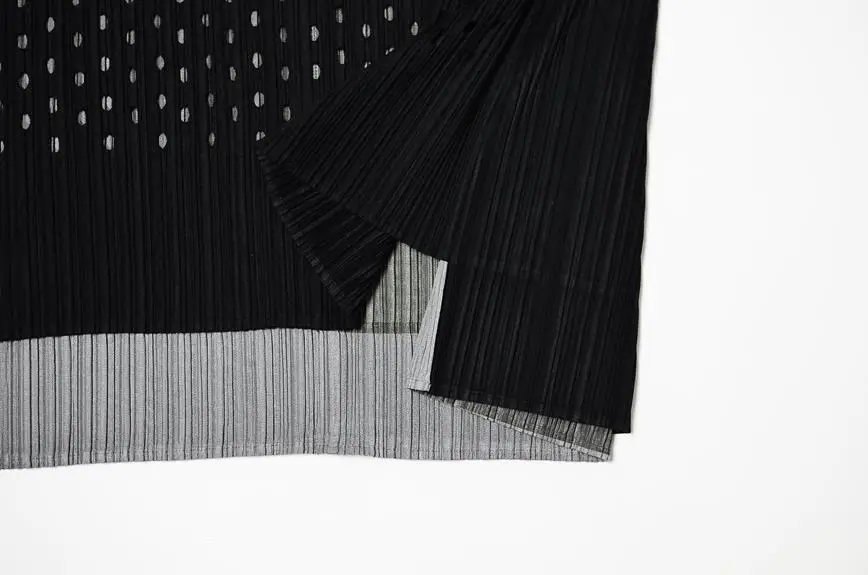You know the importance of caring for your synthetic fabrics. But are you washing them the right way?
Here are 5 tips for washing synthetic fabrics that will help you master this essential laundry task.
- Understand the different types of synthetic fabrics. Each type may have specific care instructions, so it's important to know what you're working with.
- Choose the right detergent. Look for a mild detergent that is specifically formulated for synthetic fabrics. Avoid using bleach or fabric softeners, as they can damage the fibers.
- Use gentle washing and drying techniques. Set your washing machine to a gentle or delicate cycle with cool water. Avoid using high heat when drying synthetic fabrics, as it can cause shrinkage or damage.
- Handle stains and odors effectively. Treat stains promptly with a stain remover that is safe for synthetic fabrics. For odors, consider using a fabric freshener spray or adding a cup of white vinegar to the wash cycle.
- Follow these tips to keep your synthetic fabrics looking their best wash after wash. Whether it's your favorite workout gear or a stylish polyester blouse, proper care will ensure they last longer and maintain their appearance.
By following these tips, you can ensure that your synthetic garments look great and last longer. So, next time you do your laundry, take a moment to give your synthetic fabrics the care they deserve.
Key Takeaways
- Different types of synthetic fabrics have specific care instructions.
- Separating synthetic fabrics from natural fibers ensures proper care.
- Select a detergent formulated for delicate materials and suitable for synthetic fabrics.
- Sort laundry and wash delicate garments separately, using gentle washing and drying techniques.
Understanding Synthetic Fabrics
To effectively care for synthetic fabrics, understanding their composition is essential.
Polyester blends, a common type of synthetic fabric, are made by blending polyester fibers with other materials like cotton or wool. This results in fabrics that are durable, wrinkle-resistant, and moisture-wicking.
The advantages of synthetic materials, such as polyester blends, include their ability to retain shape and resist shrinking, making them ideal for clothing that needs to maintain its form and size over time. Additionally, synthetic fabrics are often more affordable than natural fibers, making them a popular choice for everyday clothing items.
Understanding the composition of synthetic fabrics like polyester blends can help you better care for them when it comes to washing and drying, ensuring that they maintain their quality and longevity.
Keep these advantages in mind when choosing and caring for your synthetic garments, and you'll be able to enjoy their benefits for a long time.
Sorting Laundry by Fabric Type
When sorting laundry by fabric type, start by separating your synthetic fabrics from natural fibers to ensure proper care and maintenance. Synthetic fabrics such as polyester, nylon, and spandex require different washing and drying methods compared to natural fibers like cotton, linen, and wool. Sorting laundry by fabric type is essential for maintaining the quality of your clothes and preventing damage during the washing process.
This fabric care technique also allows you to customize the washing cycle and detergent selection based on the specific needs of the fabrics, ensuring optimal cleaning and maintenance.
Proper laundry organization by fabric type also helps to avoid potential issues such as color bleeding or fabric pilling. Separating synthetic fabrics from natural fibers prevents lint transfer and minimizes the risk of static cling. Additionally, by sorting laundry based on fabric type, you can prevent wrinkles and shrinkage that may occur when different fabrics are washed together.
This attention to detail in fabric care and laundry organization will help prolong the lifespan of your clothes and keep them looking their best for longer.
Choosing the Right Detergent
For washing synthetic fabrics, start by selecting a detergent specifically formulated for delicate materials. When choosing a detergent, consider its effectiveness in cleaning synthetic fabrics without causing damage. Look for detergents labeled as suitable for delicate or synthetic fabrics, as they're formulated to be gentler on the fibers. These detergents often contain milder surfactants and fewer harsh chemicals that can break down synthetic materials.
Consider the environmental impact of the detergent as well. Opt for detergents that are biodegradable and eco-friendly to minimize the release of harmful chemicals into the environment. Some detergents are formulated to be more sustainable and are free from phosphates, optical brighteners, and artificial fragrances, making them a better choice for both your synthetic fabrics and the planet.
When using the selected detergent, follow the manufacturer's instructions for the appropriate amount to use based on the load size and level of soiling. Using too much detergent can leave residue on the fabric, affecting its feel and appearance. By choosing the right detergent, you can effectively clean your synthetic fabrics while minimizing environmental impact.
Gentle Washing and Drying Techniques
When washing synthetic fabrics, you should be mindful of using gentle washing and drying techniques to avoid damaging the delicate fibers. To ensure proper fabric care, start by sorting your laundry and washing delicate garments separately from heavier items. Use a mild detergent specifically formulated for delicate fabrics. When loading the washing machine, place delicate items in a mesh laundry bag to prevent snagging or stretching during the wash cycle. Opt for a gentle or delicate setting with a cool water temperature to prevent excessive agitation and heat that can harm synthetic fibers.
After washing, carefully remove the delicate garments from the machine and reshape them before drying. Avoid wringing out the water, as this can damage the fibers. Instead, gently press the excess water out by pressing the garment between towels.
When it comes to drying, air-drying is the gentlest option for delicate fabrics. Lay the garments flat on a clean, dry towel or use a drying rack to maintain their shape and avoid stretching. If using a dryer, select a low heat setting to prevent damage from excessive heat.
Handling Stains and Odors
To effectively handle stains and odors on synthetic fabrics, prioritizing gentle treatment is crucial for maintaining the delicate fibers. When dealing with stubborn stains, it's important to act promptly and use the appropriate stain removal techniques to prevent fabric discoloration.
Here are some tips to help you effectively handle stains and odors on synthetic fabrics:
- Blot the stain with a clean cloth and cold water to remove as much of the stain as possible without rubbing it in.
- Pre-treat the stained area with a gentle detergent or stain remover, following the product's instructions carefully.
- Avoid using hot water on stains, as it can set the stain and make it more difficult to remove.
- Consider using baking soda or white vinegar to help eliminate odors from synthetic fabrics before washing.
- Always check the care label of the garment for specific instructions on stain removal and odor elimination to ensure you're using the appropriate methods.
Frequently Asked Questions
Can I Use Fabric Softener on Synthetic Fabrics?
Yes, you can use fabric softener on synthetic fabrics, but using vinegar is a better choice. It helps prevent static cling, avoids chemicals, and leaves your clothes feeling soft and fresh.
How Often Should I Wash My Synthetic Fabrics?
You should wash your synthetic fabrics every 3-4 wears to maintain their quality. Follow the fabric care instructions on the label and use a mild detergent. Avoid using fabric softener as it can reduce the fabric's moisture-wicking properties.
Can I Bleach Synthetic Fabrics to Remove Stains?
Yes, you can use bleach alternatives to remove stains from synthetic fabrics. Stain removal techniques like oxygen-based cleaners or color-safe bleach are effective and gentle on synthetic materials. Always follow the care label instructions.
Should I Use a Pre-Treatment for Tough Stains on Synthetic Fabrics?
For tough stains on synthetic fabrics, using a pre-treatment can help with stain removal. It's important to consider the fabric's durability and follow the care instructions. Pre-treating tough stains can make washing more effective.
Can I Use a Dryer Sheet When Drying Synthetic Fabrics?
Yes, you can use a dryer sheet when drying synthetic fabrics. It helps reduce static and adds a fresh scent. Make sure to follow proper drying techniques to prevent damage and maintain the fabric's quality.
- Tetron Fabric for Marine Applications: Durability and Use Cases - June 18, 2025
- Tetron Fabric for Outdoor Furniture: Weather Resistance and Care - June 18, 2025
- Tetron Fabric for Wall Coverings: Style and Application Tips - June 18, 2025






